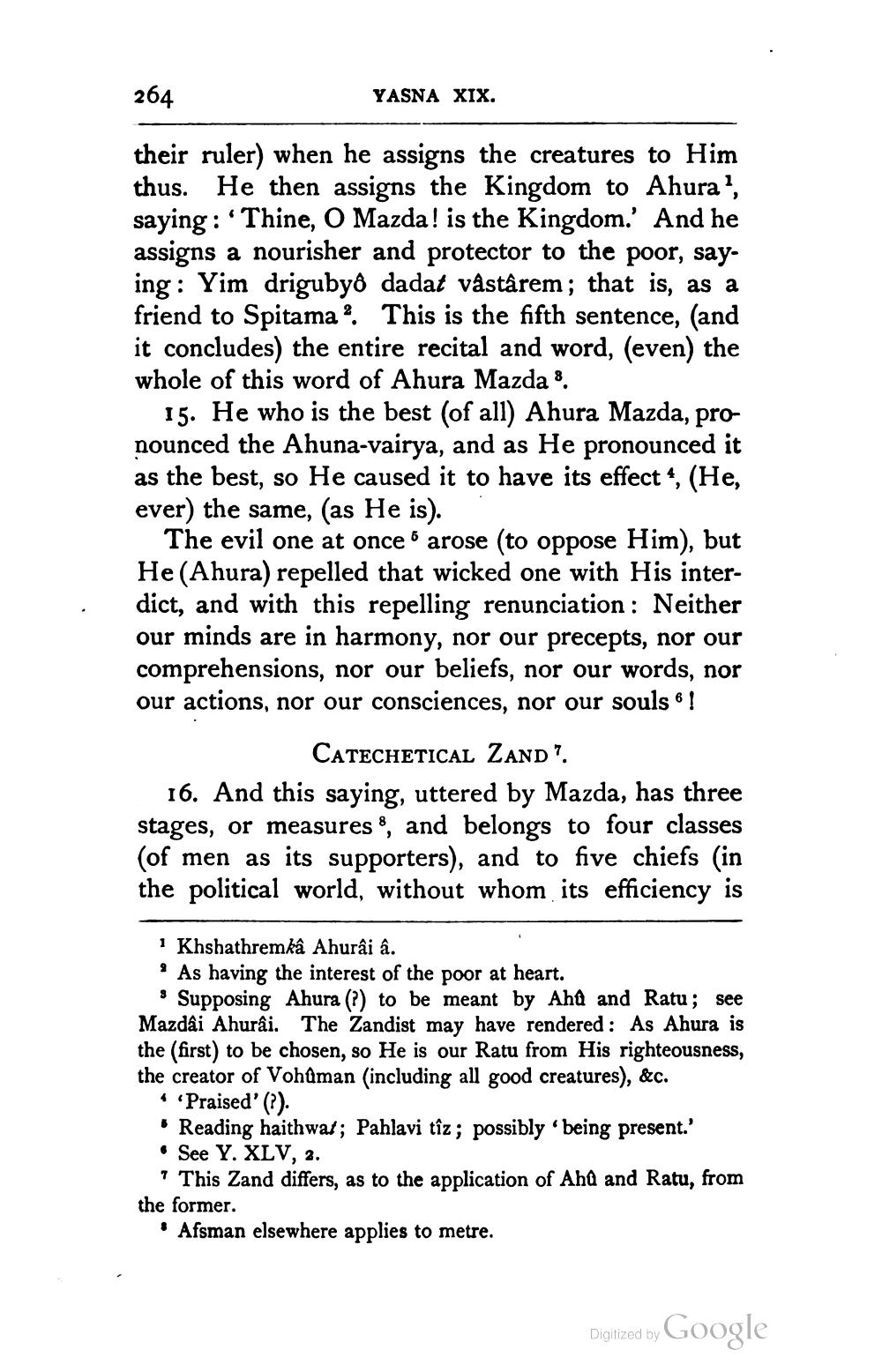________________
264
YASNA XIX.
their ruler) when he assigns the creatures to Him thus. He then assigns the Kingdom to Ahura”, saying: 'Thine, O Mazda! is the Kingdom.' And he assigns a nourisher and protector to the poor, saying: Yim drigubyô dadat vâstârem; that is, as a friend to Spitama”. This is the fifth sentence, (and it concludes) the entire recital and word, (even) the whole of this word of Ahura Mazda 8.
15. He who is the best (of all) Ahura Mazda, pronounced the Ahuna-vairya, and as He pronounced it as the best, so He caused it to have its effect 4, (He, ever) the same, (as He is).
The evil one at once arose (to oppose Him), but He (Ahura) repelled that wicked one with His interdict, and with this repelling renunciation: Neither our minds are in harmony, nor our precepts, nor our comprehensions, nor our beliefs, nor our words, nor our actions, nor our consciences, nor our souls o !
CATECHETICAL ZAND? 16. And this saying, uttered by Mazda, has three stages, or measures, and belongs to four classes (of men as its supporters), and to five chiefs (in the political world, without whom its efficiency is
* Khshathremkâ Ahurâi â. • As having the interest of the poor at heart.
• Supposing Ahura () to be meant by Ahll and Ratu; see Mazdai Ahurâi. The Zandist may have rendered: As Ahura is the (first) to be chosen, so He is our Ratu from His righteousness, the creator of Vohûman (including all good creatures), &c.
Praised' (?). • Reading haithwat; Pahlavi tîz; possibly being present.' • See Y. XLV, 2.
? This Zand differs, as to the application of Ahd and Ratu, from the former.
• Afsman elsewhere applies to metre.
Digitized by
Digitized by Google




